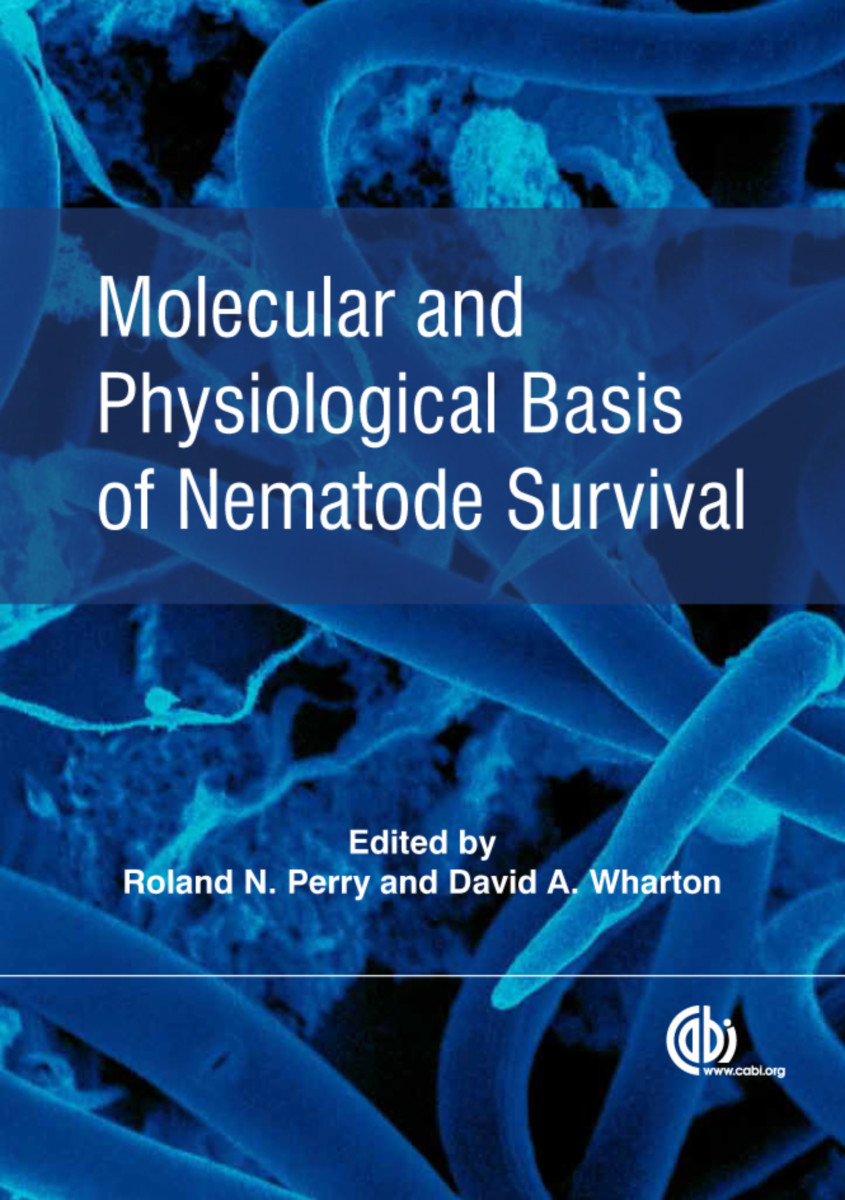Molecular and Physiological Basis of Nematode Survival
- Publisher
CABI - Published
3rd May 2011 - ISBN 9781845936877
- Language English
- Pages 340 pp.
- Size 6.875" x 9.75"
- Images figures & b/w photos
Nematodes are well known for their ability to survive environmental extremes. Their survival mechanisms for cold tolerance, thermobiotic, osmotic and ionic stress mechanisms are presented here together with information on the underlying biochemical basis contributing to survival. Highlighting parallels and contrasts between groups, the book integrates information on the strategies that enable nematodes to overcome a lack of food with tactics used by parasitic forms to survive the defence responses of a plant or animal host, or the absence of a host.
1. Survival of Parasitic Nematodes outside the Host
2. Survival of Plant-parasitic Nematodes inside the Host
3. Survival of Animal-parasitic Nematodes inside the Animal Host
4. The Genome of Pristionchus pacificus and Implications for Survival Attributes
5. The Dauer Phenomenon
6. Gene Induction and Desiccation Stress in Nematodes
7. Longevity and Stress Tolerance of Entomopathogenic Nematodes
8. Cold Tolerance
9. Molecular Analyses of Desiccation Survival in Antarctic Nematodes
10. Thermobiotic Survival
11. Osmotic and Ionic Regulation
12. Biochemistry of Survival
Roland N. Perry, PhD
Professor Roland Perry is based at the University of Hertfordshire, UK. He graduated with a BSc (Hons) in Zoology from Newcastle University, UK, where he also obtained a PhD in Zoology on physiological aspects of desiccation survival of Ditylenchus spp. After a year's post doctoral research at Newcastle, he moved to Keele University, UK, where he taught Parasitology; after 3 years at Keele, he was appointed to Rothamsted Experimental Station (now Rothamsted Research). His research interests centred primarily on plant-parasitic nematodes, especially focusing on nematode hatching, sensory perception, behavior and survival physiology, and several of his past PhD and post-doctoral students are currently involved in nematology research. He remained at Rothamsted until 2014, when he moved to the Department of Biological and Environmental Sciences, University of Hertfordshire. He co-edited The Physiology and Biochemistry of Free-living and Plant-parasitic Nematodes (1998), Root-knot Nematodes (2009), Molecular and Physiological Basis of Nematode Survival (2011), the first (2006) and second (2013) editions of the text book, Plant Nematology and Cyst Nematodes (2018) (all CAB International, UK). He is author or co-author of over 40 book chapters and refereed reviews and over 120 refereed research papers. He is joint Editor-in-Chief of Nematology and Chief Editor of the Russian Journal of Nematology. He is joint Editor of the book series Nematology Monographs and Perspectives. In 2001, he was elected Fellow of the Society of Nematologists (USA) in recognition of his research achievements; in 2008 he was elected Fellow of the European Society of Nematologists for outstanding contribution to the science of Nematology; and in 2011 he was elected Honorary Member of the Russian Society of Nematologists. He is a Visiting Professor at Ghent University, Belgium, where he lectures on nematode biology, focusing on physiology and behavior.
David A. Wharton
David A. Wharton is Associate Professor, University of Otago, New Zealand.


